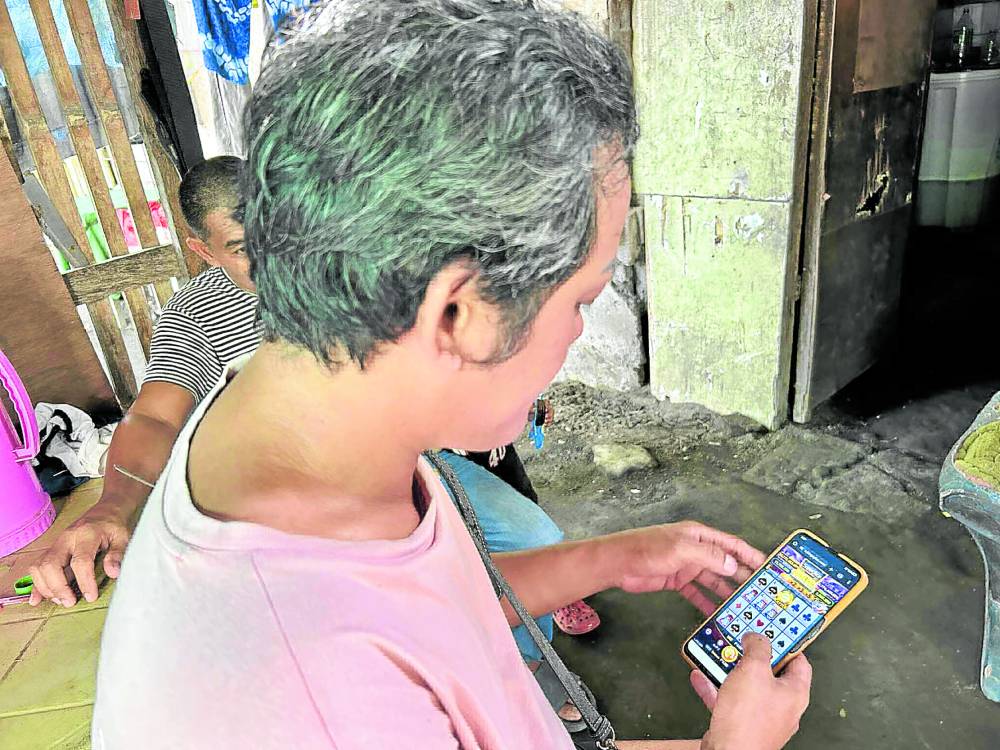Online gambling addiction: The lures and hoped-for cures

Online gambling is now a P410-billion industry in the Philippines (2024), and it’s projected to reach up to P480 billion in annual gross gaming revenue (GGR) this year.
GGR equals total amount wagered less total winnings paid to players.
But why the rapid growth? Simple—it’s big business.
Casinos and online gambling platforms are thriving as demand rises across all sectors—from jeepney drivers and office workers to small business owners.
A crisis beyond the numbers
Gambling addicts often pour most of their income into bets. For these individuals, it’s not a game—it’s a daily compulsion.
The consequences? Unhealthy family relationships. Mounting debt. Emotional isolation.
In many households, basic needs such as food, education and health care are sacrificed in favor of the next “big win.” But that win rarely comes.
The rise of online gambling has made matters worse. Through e-wallets like GCash and Maya, and gambling platforms that operate 24/7, addiction is now just a few taps away—no brick-and-mortar casino required.
Students, young professionals, even full-time parents can place bets without ever leaving their beds.
Why online gambling is so addictive
Online gambling platforms use psychological tactics like:
- Instant access, which removes natural barriers to entry
- Near-miss outcomes that trick your brain into thinking “almost winning” is in progress
- Bright visuals and sounds that mimic slot machines, keeping your senses overstimulated.
- Bonuses, free spins and cash-back promos that feel like gifts but are really bait to make you keep betting.
Add to these the illusion of control—that with the right strategy or “luck,” a life-changing win is just around the corner. But the truth is, the house always wins.
Practical ways to help a gambling addict
I know it can be frustrating to help a gambling addict, especially when it’s a friend or relative who might take your advice the wrong way.
But instead of direct confrontation, here are more subtle and effective ways you can support them in improving their lives—by using the same psychological tactics that gambling platforms use, but this time, for their benefit.
- Uninstall gambling apps. In more serious cases, avoid using the same device and ask a trusted person to safekeep it. When access is removed, the habit becomes harder to sustain.
- Rewire the mind to see every peso they gamble as money thrown away. Remind them that casinos and gambling platforms exist to make money—not to give it away. They are businesses, not charities. The odds are always stacked in their favor. Instead of fantasizing about their next win, make them visualize the real things they could have bought with that money:
- A brand-new gadget
- A memorable family trip
- Emergency savings or future investments
All of these are far more rewarding than fleeting winnings from a gambling platform.
Making it inconvenient to gamble
Online gambling thrives on convenience because humans are wired to take the path of least resistance. No time to visit a casino? It’s online. No cash? You can use credit or e-wallets.
But you can turn the tables by making gambling inconvenient.
- Use app blockers to restrict access to gambling platforms.
- Unlink or delete saved credit cards and e-wallet accounts.
- Set up two-factor authentication using a trusted friend’s email or phone number to delay impulses.
- Consider opting out of online banking to limit access to funds.
If it becomes difficult to place a bet, you’re far less likely to do it.
Use both rewards and consequences
People respond to both pleasure and pain. Use this psychology to your advantage.
Set small milestones: one day, three days, seven days, two weeks and one month without gambling.
Reward yourself with simple pleasures—a meal out, a movie, or a day of rest.
Likewise, impose consequences every time you gamble: give P1,000 to your partner; lock your phone for a week; restrict yourself from an activity you enjoy.
The more meaningful the punishment, the more effective it is in discouraging relapse. After all, no one enjoys being punished.
Herald Tan aims to empower Filipinos by building a learning community focused on stock trading. With the right guidance, system and mindset, he sees the stock market as a pathway to financial freedom. Email him at millennialtraderbook@gmail.com.





















